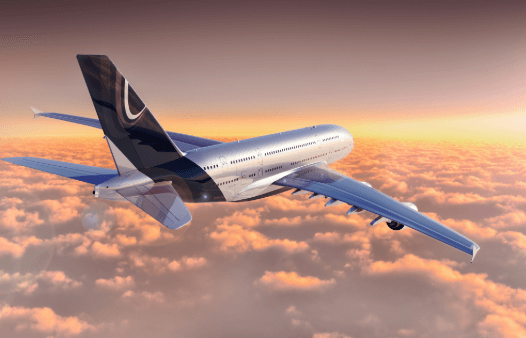By Grace Chigbu
In the past 15 months, Nigerians have spent a staggering $4.66 billion on foreign air travels due to the scarcity of foreign exchange, leading to skyrocketing airfares. Data obtained from the Central Bank of Nigeria (CBN) revealed that foreign airlines purchased foreign currency to repatriate their ticket sale proceeds, but they have been encountering challenges in doing so. As a result, airfares on Nigerian routes have escalated, causing concern among experts and passengers alike.
Between the first quarter of 2022 and the first quarter of 2023, foreign airlines were sold a total of $4.66 billion worth of foreign exchange by the CBN, marking an alarming 79% increase within this timeframe. International Air Transport Association (IATA) data showed that Nigeria topped the list of countries with the highest amount of airline-blocked funds globally, amounting to $743.7 million in January 2023, adversely affecting airfares.
A comparison between air ticket prices from Lagos to London and Accra to London revealed a significant difference of 49.6%. Passengers flying via Turkish Airlines from Lagos paid $3,295 for a one-way economy ticket, whereas those flying from Cotonou International Airport in Benin Republic paid only $1,256, representing a whopping 162.3% disparity. Similarly, Lagos passengers paid $3,295 while Ghanaians paid $2,202 for the same date and airline, indicating a 49% difference in air ticket prices.
The situation is equally concerning for long-haul flights. An economy flight ticket from Lagos to Toronto costs $2,737, compared to $2,018 from Benin to Toronto, representing a 35.6% increase. Additionally, Accra to Toronto stands at $2,546, with a more modest 7.5% difference. For Lagos to New York flights, passengers pay $3,689, whereas Benin to New York flights are priced at $2,493, and Accra to New York at $2,562. A one-way economy ticket from Lagos to Dubai is priced at $944, while Cotonou to Dubai costs $693, and Accra to Dubai is priced at $848.
Amidst the escalating fares, the Nigeria Air project, the proposed national carrier, continues to face delays and legal hurdles, hampering efforts to establish a competitive local airline. Experts stress the need to establish three flag carriers in Nigeria to reduce capital flight and increase the country’s share of passenger traffic. However, the absence of a national carrier has not hindered local carriers like Air Peace from operating multiple routes, raising questions about their capacity to effectively manage additional foreign routes.
The Nigerian Civil Aviation Authority (NCAA) recently released a three-month report on flight activities, revealing 24 flight cancellations and 9,087 delayed or missing baggage among the 25 international airlines operating in Nigeria. Furthermore, 39% of international flights experienced delays between January and March.
Experts point out that Nigeria needs to reciprocate its Bilateral Air Services Agreement (BASA) to reduce the monopoly enjoyed by foreign airlines and lower ticket prices. Building strong flag carriers is crucial to competing effectively with international airlines and addressing the issue of high airfares. Encouraging airlines to open up ownership and management and increasing supply are also essential to easing the demand-driven fare surge.
As Nigeria grapples with the foreign exchange shortage, the aviation industry faces the challenge of soaring airfares, affecting millions of travelers and raising concerns about the country’s competitiveness in the global air travel market. The need for concrete actions to establish efficient flag carriers and ensure bilateral agreements are honored is vital to restore balance to the aviation sector and offer more affordable travel options for Nigerian passengers.

